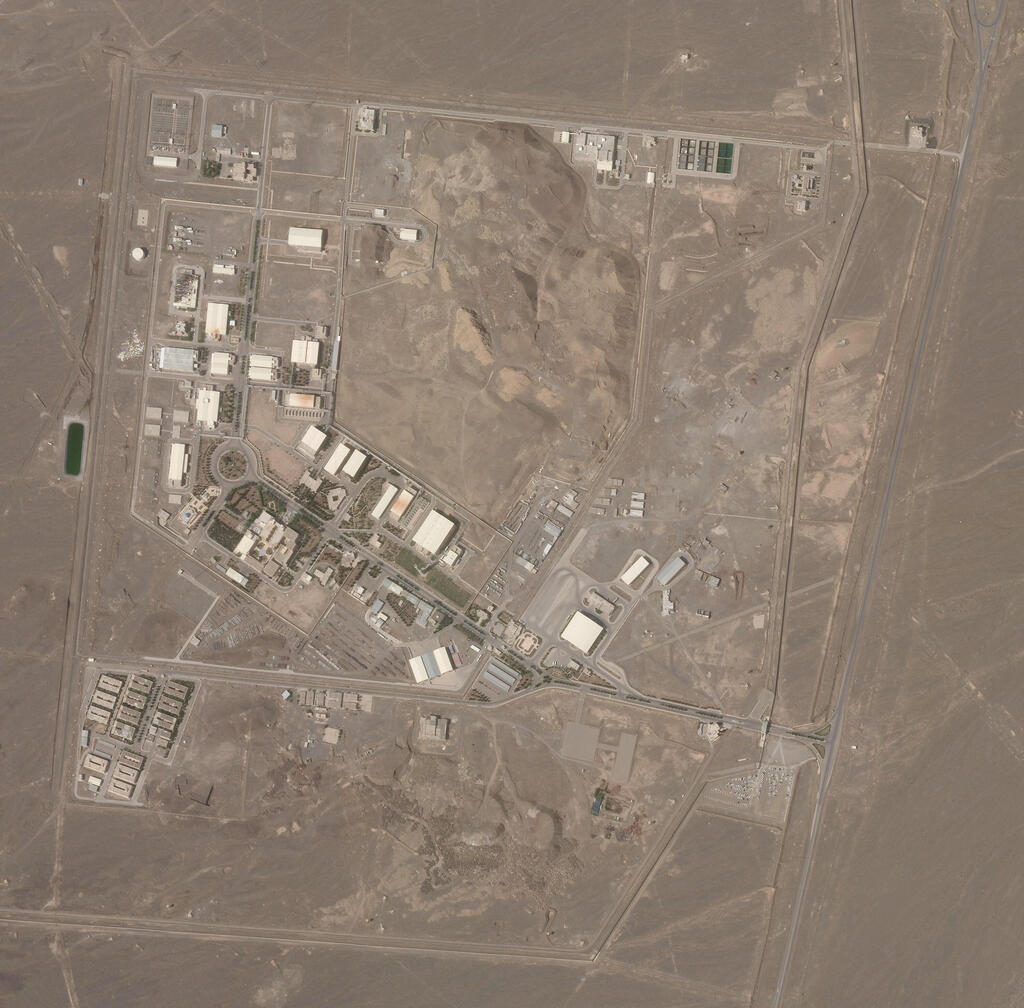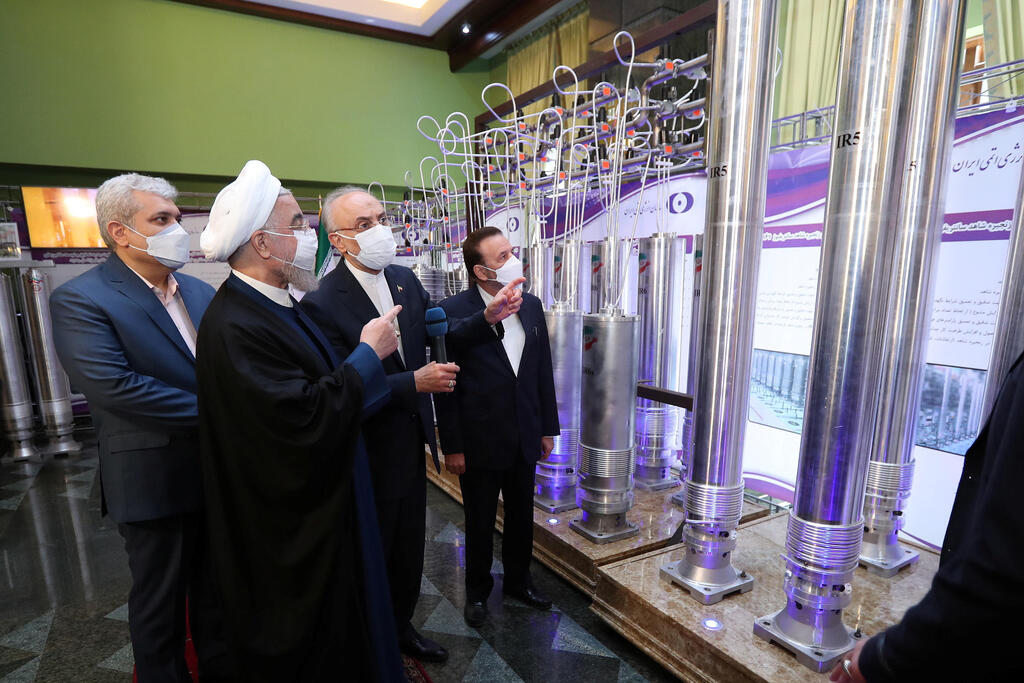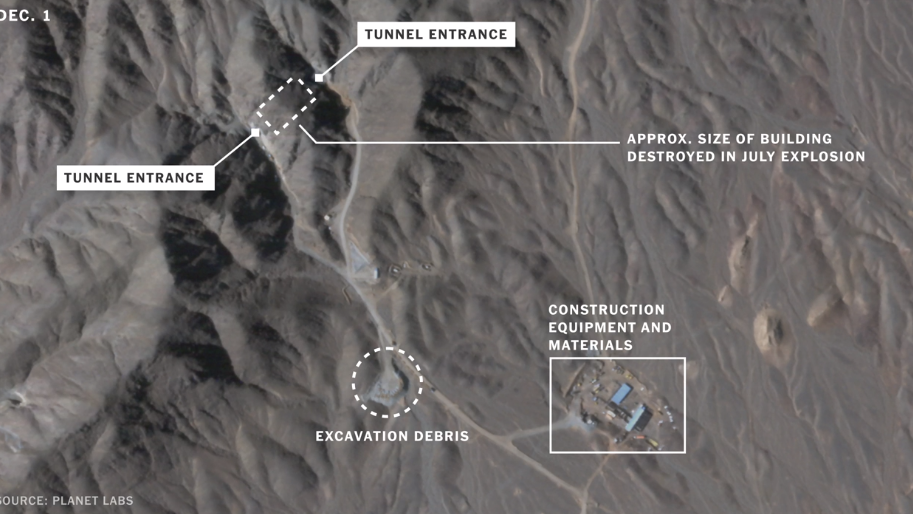Getting your Trinity Audio player ready...
Israel appeared to be in the frame for an unexplained power blackout at Iran's underground Natanz nuclear facility Sunday, just hours after starting up new advanced centrifuges capable of enriching uranium faster.
The blackout was the latest incident to strike the site amid negotiations with world powers over reviving the tattered nuclear accord of 2015.
As Iranian officials investigated the outage, many Israeli media outlets offered similar assessments that a cyberattack had darkened Natanz and damaged a facility that is home to sensitive centrifuges.
While the reports offered no sourcing for the evaluation, members of the Israeli media often maintain a close relationship with the country's military and intelligence agencies.
Multiple Israeli outlets reported Sunday that a cyberattack caused the incident, which one Iranian official described as "very suspicious."
Public broadcaster Kan said Israel was likely behind the attack, citing Israel's alleged responsibility for the Stuxnet attacks a decade ago.
Channel 12 TV cited "experts" as estimating the attack shut down entire sections of the facility.
None of the reports included sources or explanations on how the outlets came to that assessment.
But IDF Chief of Staff Aviv Kochavi also appeared to allude to Iran in a comment Sunday about Israeli military operations, hours after Tehran reported the Natanz incident.
5 View gallery


IDF Chief of Staff Aviv Kochavi speaks at a memorial service in Jerusalem on Sunday
(Photo: Israel Defense Forces)
The IDF's "operations in the Middle East are not hidden from the eyes of the enemy," Kochavi said at a memorial service in Jerusalem for fallen soldiers.
"They are watching us, seeing [our] abilities and weighing their steps with caution," he said.
Meeting with U.S. Secretary of Defense Lloyd Austin in Tel Aviv on Sunday, Defense Minister Benny Gantz said Israel viewed America as an ally against all threats, including Iran.
"The Tehran of today poses a strategic threat to international security, to the entire Middle East and to the State of Israel," Gantz said.
"And we will work closely with our American allies to ensure that any new agreement with Iran will secure the vital interests of the world, of the United States, prevent a dangerous arms race in our region, and protect the state of Israel."
5 View gallery


Defense Minister Benny Gantz greeting U.S. Secretary of Defense Lloyd Austin at the Defense Ministry headquarters in Tel Aviv on Sunday
(Photo: Defense Ministry)
Austin is on a two-day trip to Israel, the first by a senior member of Joe Biden's administration since the U.S. president took office in January.
If Israel caused the blackout, it further heightens the tensions between the two nations already engaged in a shadow conflict across the wider Middle East.
It also complicates efforts by the U.S., Israel's main security partner, to re-enter the atomic accord aimed at limiting Tehran's program so it couldn't pursue a nuclear weapon if it chose.
Power at Natanz had been cut across the facility comprised of above-ground workshops and underground enrichment halls, civilian nuclear program spokesman Behrouz Kamalvandi told Iranian state television.
"We still do not know the reason for this electricity outage and have to look into it further," Kamalvandi said. "Fortunately, there was no casualty or damage and there is no particular contamination or problem."
Asked by the state TV correspondent if it was a "technical defect or sabotage," Kamalvandi declined to comment.
5 View gallery


This satellite photo from Planet Labs Inc. shows Iran's Natanz nuclear facility on April 7, 2021
(Photo: AP)
Malek Shariati Niasar, a Tehran-based lawmaker who serves as spokesman for the Iranian parliament's energy committee, wrote on Twitter that the incident was "very suspicious," raising concerns about possible "sabotage and infiltration."
He said lawmakers were pursuing details of the incident as well.
The Vienna-based International Atomic Energy Agency, which monitors Iran's program, said it was "aware of the media reports," but declined to comment.
Natanz was largely built underground to withstand enemy airstrikes. It became a flashpoint for Western fears about Iran's nuclear program in 2002, when satellite photos showed Iran building its underground centrifuges facility at the site, some 200 kilometers (125 miles) south of the capital, Tehran.
Natanz suffered a mysterious explosion at its advanced centrifuge assembly plant in July 2020 that authorities later described as sabotage. Iran now is rebuilding that facility deep inside a nearby mountain.
Israel, Iran's regional archenemy, has been suspected of carrying out that attack as well as launching other assaults, as world powers now negotiate with Tehran in Vienna over its nuclear deal.
Iran also blamed Israel for the killing of a scientist who began the country's military nuclear program decades earlier.
The Stuxnet computer virus, discovered in 2010 and widely believed to be a joint U.S.-Israeli creation, once disrupted and destroyed Iranian centrifuges at Natanz.
Israel has not claimed any of the attacks, though Prime Minister Benjamin Netanyahu repeatedly has described Iran as the major threat faced by his country in recent weeks.



